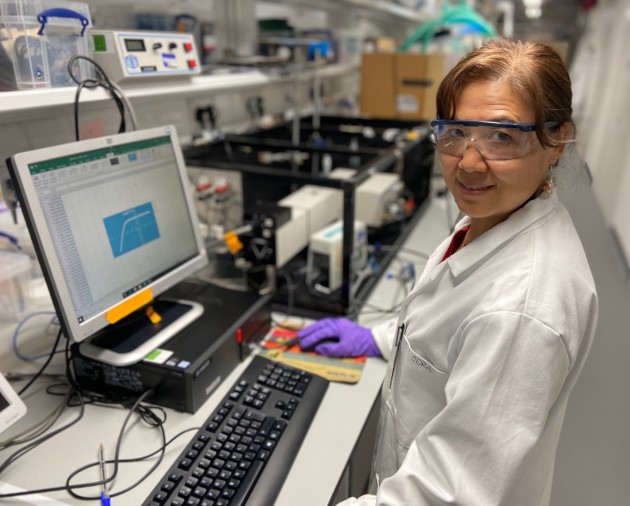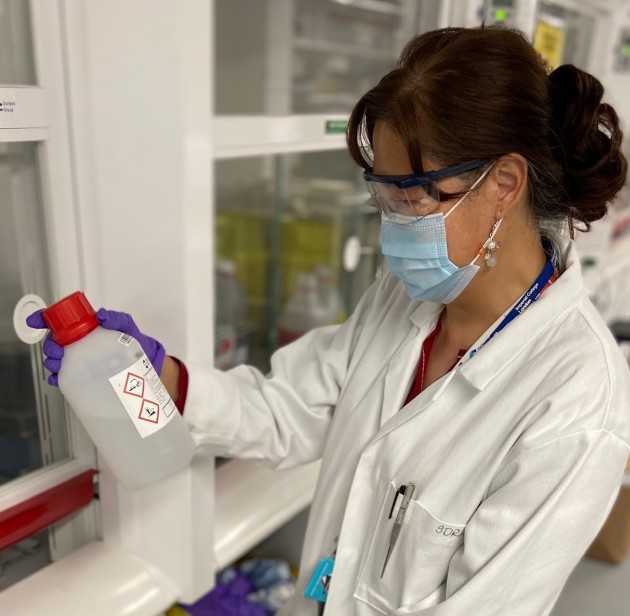Dr Xiaoe Li, Research Technician, Department of Chemistry

What is your role?
I am a research technician and laboratory manager in the Department of Chemistry at the Molecular Sciences Research Hub, White City. I have been in this role since 2006, continuing after my PhD in 2012. The most enjoyable part of my role is working with academics and research fellows, co-supervising students using my broader scientific understanding in solar cells. Meanwhile, my research on renewable energy technologies makes a very important contribution to the general public and the physical environment. I am a Chartered Scientist and the lab I am managing was awarded a bronze medal for the Lab Efficiency Assessment Framework 2020.
After we moved from South Kensington to the White City campus, I became lab manager for two shared laboratories. At South Kensington, I had managed a laboratory for one main research group and internal and external collaborators. Thus, lab management at White City is a big challenge for me as the wet lab is shared by six research groups using different chemicals/materials for their own research activities, and the instrument lab has eight instruments shared by the department. Although the lockdown and reopening of of the Molecular Sciences Research Hub was stressful, I have learned so much including setting up risk assessments, not only for chemical but also medical hazards. I don't know yet what my next steps will be but I do know I learn and make progress every day.
What would be your advice for someone starting out?

I would suggest understanding your job responsibilities and having a passion for your work. Ask whenever you need help.
Was it easy to make the transition from Research Technician to Lab Manager?
No, it was very challenging for me! As a research technician, I mainly focused on research and my work involved developing new methodologies, reading and reviewing papers, and supervising postgraduate students in labs based on my 20 years' of research experience. As a lab manger, I need to focus on safety and management, which requires me to connect with the department and college safety teams, departmental technical support teams and students from different backgrounds doing different research activities.
Are there courses or other development opportunities at Imperial that you would recommend to others?
Yes, there is a good suite of safety-related training courses, such as risk assessment training, safety leadership training, fire prevention and fire safety at work, emergency first aid at work, laser safety training, cryogenic liquids and decanting liquid nitrogen course, and a compressed gases and connecting gas regulators course. In addition, I have attended various professional and personal development courses offered by the college, such as mental health awareness, managing metal health in the workplace, bullying and harassment at work, active bystanders training, and understanding unconscious bias. These courses have helped me to look after myself and support my colleagues.